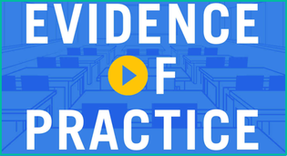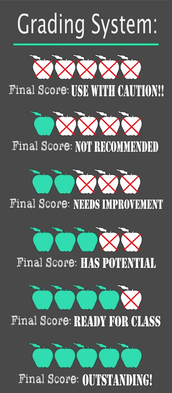
Overall, the ideas and strategies covered throughout the book do an excellent job of bringing together research and practice in ways that can be easily implemented throughout K-12 environments.
In general, using video to help improve teaching practice offers a wide variety of benefits. Teachers can self-reflect on their practices, can discuss recordings of lessons with their colleagues, and can work with coaches and administrators on goal-setting and improving practice. Plus, the inherent nature of video recordings mean that teachers can do these things more on their own time, as opposed to in-person observations.
The other point to make is that while this book was published by the Edthena team, the ideas and strategies outlined throughout this book do not require Edthena. Even if you’re just recording lessons with a smartphone, you can still put these strategies into practice.
To provide an overview of what’s offered in the book, the 12 video-based strategies that are discussed are:
- Classroom tour: Teachers show how their room is organized and the systems they have in place.
- Self-Interview: Teachers record themselves discussing their classroom goals, individual student goals, and/or goals for their own professional growth.
- Example Analysis: Teachers analyze an example video video of teaching that relates to their own specific professional development goals.
- Pre-Teach: Teachers make a recording of a lesson rehearsal in order to practice components of an upcoming lesson.
- Video Observation: Teachers record an entire class session which they can later reflect on, or view with peers and/or administrators.
- Skill Building Sequence: Teachers watch an example video that models a certain skill, and then record a video of themselves enacting that skill. Teachers can later view and analyze this video with peers or with a coach.
- Video Learning Community: Teachers meet together to view, analyze, and discuss recordings of each other’s class sessions.
- Virtual Walk-through: Observers analyze short segments of lessons to find teaching and learning trends across classrooms in order to provide feedback to teachers.
- Video Rounds: Committee or team members analyze school or district-wide lesson recordings in order to problem-solve, determine the impact of professional development, or explore other macro-level needs.
- Longer-Range Reflection: Teachers review and reflect on recordings over a long period of time in order to look at what changes have/have not been made in practice.
- Iterative Investigation: Teachers select an area of focus and continually record and analyze their own lessons in order to make improvements around that particular area of focus.
- Online Lesson Study: A group of educators who are collaboratively focused on specific student goals teach and record lessons while observers analyze outcomes and discuss results.
Each of the 12 strategies begins with a practical example of how it could be used in the school. Following the example, each strategy provides a definition/overview, a discussion of the research-supported benefits, and specific steps for how you might go about planning and implementing the particular strategy.
Overall, for any teachers or schools who are wanting to move towards using video for professional development, this book is an excellent place to begin. The strategies offered are straightforward and research-based, and the overall discussion surrounding video-based observations centers on professional growth and improvement, not on evaluation.
For those looking to use video to improve teaching and learning practices, I absolutely recommend Evidence of Practice: Playbook for Video-Powered Professional Learning.














 RSS Feed
RSS Feed
